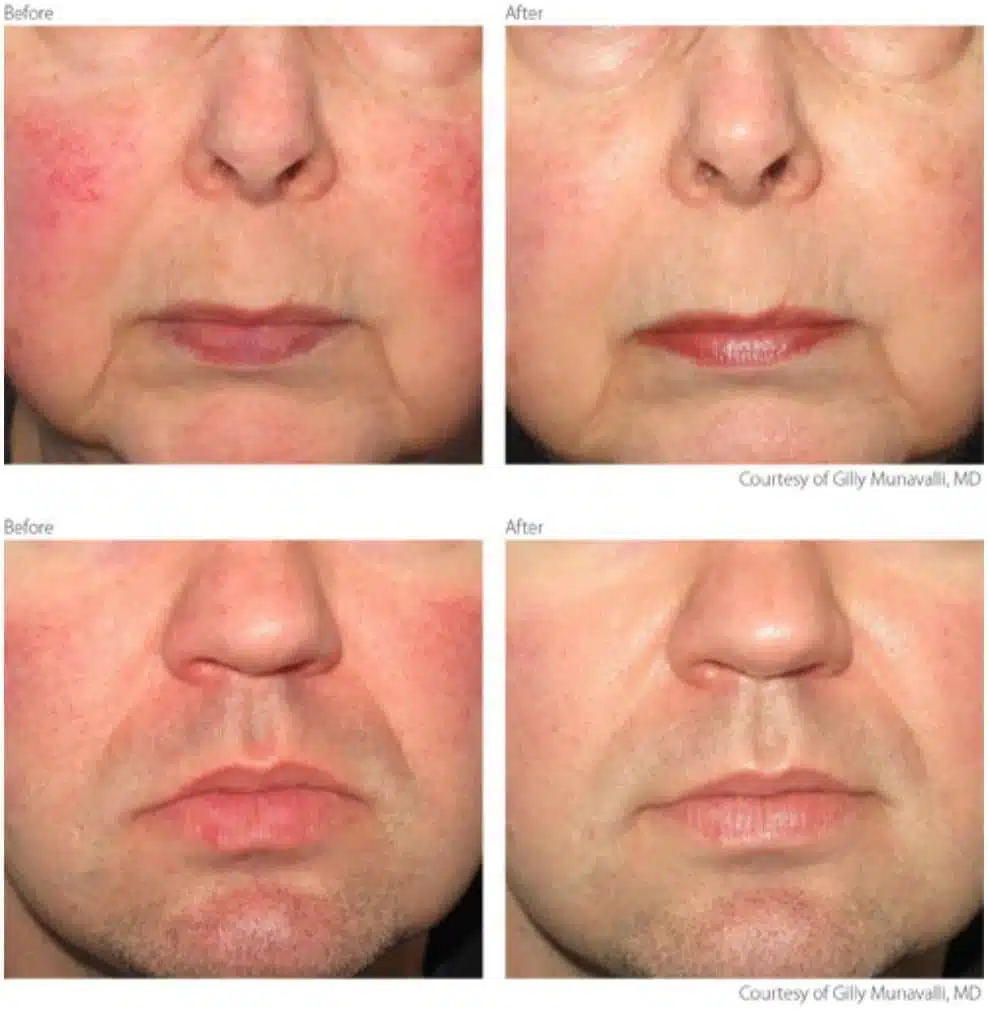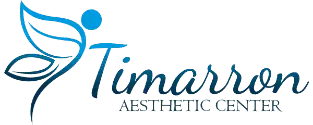
What is Rosacea?
Rosacea is a common inflammatory skin disease that often begins as a tendency to blush or flush more easily than other people. This flushing usually begins in the nose and cheeks but can spread to the forehead and chin and even the ears, neck, chest, and back and can progress to include serious skin eruptions and even eye complications.
Who gets Rosacea?
Rosacea is common. More than 16 million Americans suffer from Rosacea and most have no idea what it is or how to treat it. It occurs in people of all colors and ages, including children. It is most common in women with fair skin and blue eyes between the ages of 30-50. A previous history of severe acne or cystic acne is common. It can be hereditary and is most common in people with Scandinavian or Celtic ancestry.
What causes rosacea?
The exact cause of Rosacea is unknown. It can be hereditary or caused by sun damage, environmental factors, an overactive immune system or a combination of these. It can also be caused by a mite that lives on everyone’s skin called Demodex. Rosacea can also be caused by certain chemicals in makeup or skincare products. Some recent studies have suggested a link between gut bacteria imbalance and Rosacea. It is not caused by poor hygiene nor is it contagious.
What are the symptoms of Rosacea?
Flushing or blushing-This often starts as sporadic flushing when you get overheated, eat spicy food, drink a mug of hot coffee or tea, or go out in cold or windy weather. If untreated, the flushing and redness eventually can become persistent.
Skin Sensitivity-the skin may feel irritated, tight, sting or burn and this can progress to pain. Pustules and Papules-Bumps on the face similar to acne but usually without the clogged pores or
blackheads which are typical in acne. Tiny broken blood vessels (telangiectasias)-with repeated flushing, blood vessels can become permanently dilated causing persistent redness, most prominently on the cheeks and nose. Changes in the skin’s appearance-As the disease progresses, skin can become persistently dark, swollen, and thickened on parts of the face and nose. The nose can become enlarged, lumpy in texture, and bulbous in shape, called rhinophyma.
Eye symptoms-Rosacea can cause dry, irritated, bloodshot, red-rimmed eyes. The eyelids can swell and you can develop styes. In severe cases, visual acuity can be affected.
Rosacea can affect more than the skin and eyes. Because rosacea is a chronic skin disease, it can reduce a person’s quality of life. Many people report problems at work, in their marriage, and with meeting new people. Surveys and studies report that living with rosacea can cause:
- Feelings of frustration and embarrassment: Many sufferers of rosacea report that their rosacea caused them to avoid public contact or cancel social engagements.
- Worry: People worry that their rosacea will get worse or cause scars. People worry about side effects from medicine used to treat rosacea.
- Low self-esteem: Almost 70 percent of people living with rosacea said that the condition lowered their self-confidence and self-esteem.
- Work-related problems: Surveys conducted by the National Rosacea Society find that when rosacea is severe, 70 percent of people say the disease affects their interactions at work. Nearly 30 percent say that rosacea causes them to miss work.
- Anxiety and depression: Living with a skin condition that flares unexpectedly can cause people to believe you have a drinking problem. This can cause anxiety and depression.
Studies show that when people have fewer signs and symptoms of rosacea, their quality of life improves.
What type of things can cause Rosacea to flare?
Extreme temperatures, spicy foods, alcohol, hot drinks, exposure to UV radiation, stress, and even exercise can cause flare-ups in some people. It’s important to know what causes your Rosacea to flare up so that you can prevent the disease from progressing.
How is Rosacea diagnosed?
There is no medical test nor blood test for Rosacea so the diagnosis is made by clinical signs and symptoms. Your doctor will examine your skin and your eyes. If the diagnosis is in question, testing will sometimes be done to rule out other causes of flushing like lupus or allergic reactions. The earlier you notice the signs of rosacea and take action, the better. Once the condition becomes more advanced, it can be harder to bring the symptoms under control. Advanced ocular rosacea can ultimately result in vision loss. If you suspect that you have rosacea, keep a journal of symptoms, and visit your skincare professional.
How is Rosacea treated?
Rosacea cannot be cured but the signs and symptoms can be treated.
1. Find your triggers- Common triggers for rosacea include heat, having cold wind blowing on your face, and eating spicy foods, or drinking alcohol. It’s important to find out what causes your rosacea to flare and avoid those triggers. Keeping a journal is very helpful.
2. Sunscreen daily-People with Rosacea find that their skin is more sensitive to the sun, and sun exposure can be a cause and an exacerbating factor in Rosacea. Avoid chemical sunscreens as this my cause Rosacea to flare. Use mineral or zinc oxide sunscreens.
3. Rosacea-friendly skincare-It’s important to cleanse your skin with a gentle cleanser and moisturize twice daily. Also, read labels on your skincare products and avoid anything with alcohol, fragrance, sodium laurel sulfate, urea. Make sure to choose “fragrance free” rather than “unscented” products.
4. IPL- Rosacea can be very effectively treated using Intense Pulsed Light (IPL). IPL uses controlled light in specific wavelengths to alleviate the inflammation, redness, pimples and uneven skin tones caused by the condition. IPL offers a gentle, long-lasting solution for those suffering from Rosacea by providing a gradual and natural improvement to the skin’s appearance. The Lumenis Stellar M22 IPL is considered the industry’s “Gold Standard” for treatment of vascular lesions like Rosacea.
5. IPL for eyes-The Stellar M22 IPL is the only FDA approved IPL treatment for Dry eyes due to Rosacea. This treatment has been proven to both treat inflammation of the Meibomian Glands and inhibit the Demodex bacteria.
6. Topical creams-as an adjunct to IPL, topical creams containing peptides and antioxidants, azelaic acid, hyaluronic acid can be helpful. I love Jan Marini Rosaleve cream!
7. Prescription oral or topical antibiotics can help as well in severe cases.
8. Following a diet rich in prebiotics and probiotics to keep the gut healthy has been shown to help in addition to supplements like omega-3 fatty acids and zinc sulfate.
Rosacea is a chronic condition that can cause significant distress and can progress in severity; but the good news is that it can be treated very effectively and painlessly. Timarron Aesthetic Center is equipped with the Stellar M22, known as the Gold Standard in IPL Rosacea treatment for face and eyes. Plan to book a consult so that Dr Lori can create the perfect treatment plan to help to look and feel better and prevent future complications!
Rosacea is a common inflammatory skin disease that often begins as a tendency to blush or flush more easily than other people. This flushing usually begins in the nose and cheeks but can spread to the forehead and chin and even the ears, neck, chest, and back and can progress to include serious skin eruptions and even eye complications.
